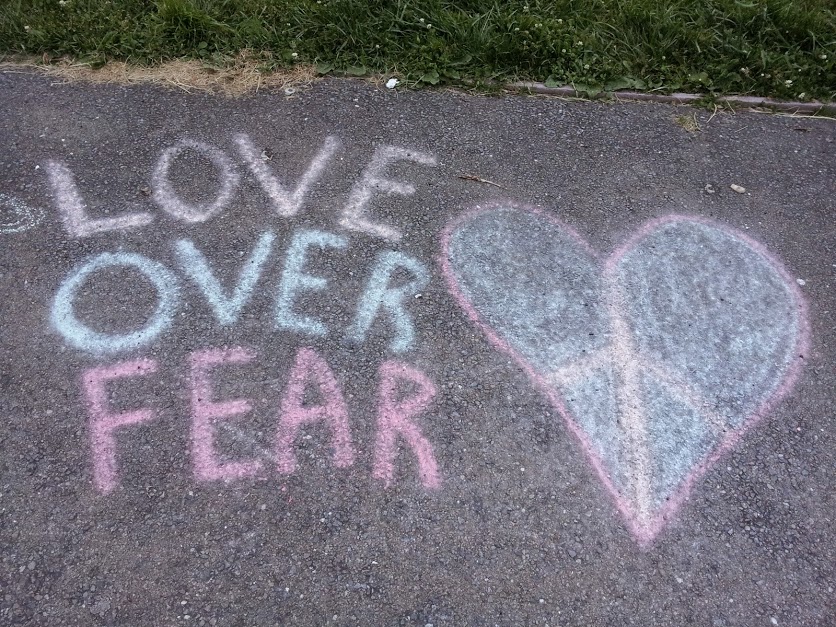
Admittedly ego often gets a bad rap. However, we can’t get rid of it–it’s as necessary as breathe–our healthy ego is meant to develop a sense of our unique self worth.
The problem is not that we have an ego, it’s that we allow the unhealthy parts of our ego to take over and rule our lives.
Like all people, I vacillate and sometimes struggle between these two places rooted in love (the connected healthy ego) and hurt (the separate, self-centered self that feels inferior or superior).
Thankfully, David Richo, PhD., a psychotherapist, teacher and best-selling author has teachings that draw on the spiritual references from the Buddha, Christ, Mother Teresa, Jung, Freud and Gandhi. He reminds us of one powerful truth–all behavior, on a deep level, is about love–trying to show or ask for it.
With that said, I wanted to share a list of “challenging practices” (to use his words) that David shared to help us let go of unhealthy egotism and foster healthy self-behavior that is more human:
20 Ways to Let go of Ego
1) Follow the Golden Rule: act toward others as we would want them to act toward us.
2) Keep the needs of others in mind, especially in little ways (it’s not always about us, sports fans)
3) Find ways to maintain healthy self-esteem without showing off. It’s OK to be a big shot; let’s not act that way.
4) Let go of ranking, especially of seeing ourselves as above others.
5) Acknowledge not knowing something or showing that we need support or help.
6) Take feedback as useful information not as criticism, even when it is meant that way.
7) Apologize when we know we have harmed or offended anyone–making amends when necessary.
8) Let go of attempts to control, dominate, or manipulate others (i.e. bullying)
9) Give people leeway and make allowances for their errors rather than pointing out, or picking up on every little thing they do that irritate us.
10) Welcome disagreement because it can lead to dialogue–highlighting a discussion on arriving at common ground or learning a new truth rather than proving ourselves right.
11) Cooperate rather than compete; collaborate rather than have to show that we know best.
12) In a group, give up having to take center-stage–trading in our own ego investment for the good of all concerned and accomplishment of the group goal.
13) Reconcile ourselves to not always getting our way.
14) Work conflicts out with people, when they are ready and willing to do so, rather than be resentful, pout, snub, or use silent treatment–all forms of retaliation.
15) Don’t hold a grudge against those who wrong us even when they won’t admit it–and stop telling the story of how they offended us. Look for ways to reconcile rather than retaliate.
16) Remain on high alert for the entry of our reactive ego: the moment we take what happened personally, become indignant, interpret an action by someone as a slight to our dignity.
17) When someone’s ego is aroused toward us–simply pause with compassion toward the pain in his/her ego-reaction and treat it with loving-kindness, while not putting up with any abuse.
18) In intimate bonds, give up defending ourselves in order to gratify our ego and instead, let go of our ego to gratify the relationship. Become the protector of the partnership rather than the defender of our own ego.
19) Do good to those who hate us, pray for enlightenment for those who have betrayed, failed, or mistreated us.
20) See losing face (and all these suggestions) as welcome opportunities for growth in humility, a virtue that makes us all more lovable.”
Some of these practices are quite challenging. However, let’s be mindful that often people who behave in hurtful ways are acting out from a place of their own pain and confusion–it’s not about us!
I’ll end by saying that when working on ourselves–when trying to make ourselves ‘more human’ (i.e., building healthy self-esteem rather than egotism)–we should always start from a place of compassion–healthy and lasting change always comes from a place of love, not hate. Progress–not perfection Warriors!
